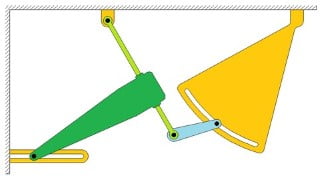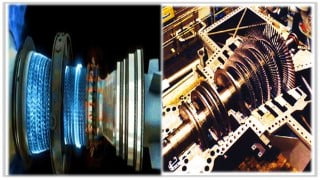Theory of Machines: Kinematic Joints & Degrees of Freedom
Master various types of kinematic joints and analyze mechanical systems to determine their Degrees of Freedom. Understand common constraints like revolute, prismatic, and rigid joints, as well as more complex ones like pin-on-slot joints and sliding/rolling contacts. Practice with exercises and solutions, and prepare for the final exam to assess your progress. Suitable for Engineering students and anyone interested in Theory of Machines.
What you’ll learn
- Understand common types of kinematic constraints such as the revolute, prismatic and rigid joints
- Experience more complex constraints such as the pin-on-slot joint as well as the sliding and rolling contacts
- Master how to analyze a mechanical system to determine its Degrees of Freedom
- Learn how to deal with challenging cases such as over-constrained systems
- Find lots of examples to have a clear picture of complex concepts
- Practice what you have learned by completing a set of easy to complex exercises with detailed solutions
- Get prepared for the exam via a quick review of the entire course followed by some more complex exercises
- Have a chance to take a final exam and self-assess your progress using the provided solutions
In this course, you will master many types of kinematic joints and will be able to analyze a mechanical system to determine its Degrees of Freedom. You will understand common kinematic constraints such as the revolute, prismatic and rigid joints, and will learn how to deal with challenging cases such as over-constrained systems. You will also experience some more complex constraints such as the pin-on-slot joint, and the sliding and rolling contacts. During each lecture, you will find enough examples and illustrations to fully grasp the concepts and have a clear picture of them. After each lecture, there will be several exercises for you to practice what you have learned. Following each exercise, you will have access to my detailed solutions in a separate lecture, which might be a good chance for you to compare with yours and evaluate your learning process. After completing all the lessons, there will be a review section giving you a quick summary of all you have learned followed by some more complex exercises from the entire course. The role of this review is to make you prepared for the final exam coming at the end of the course. You can finally assess your exam using the provided solutions and celebrate your progress.
Who this course is for:
- Students of Engineering interested in Theory of Machines
- Anyone curious about kinematic joints and mobility of mechanisms
User Reviews
Be the first to review “Theory of Machines: Kinematic Joints & Degrees of Freedom”
You must be logged in to post a review.







There are no reviews yet.